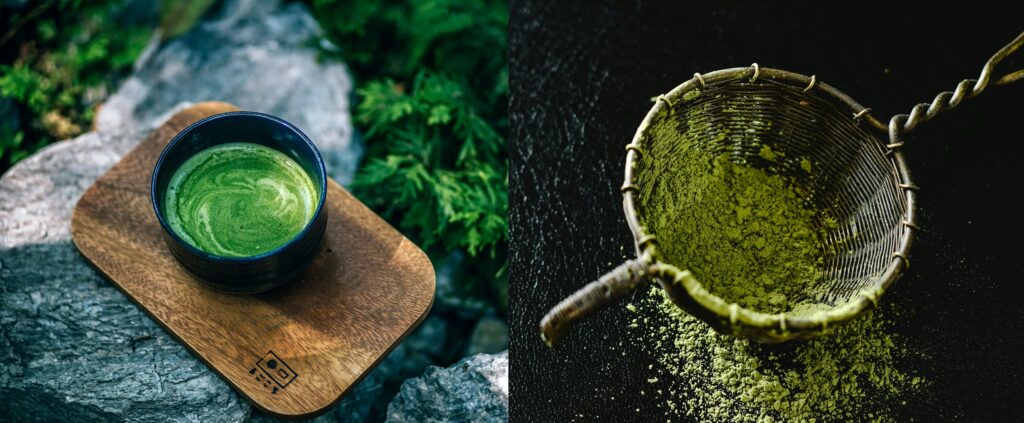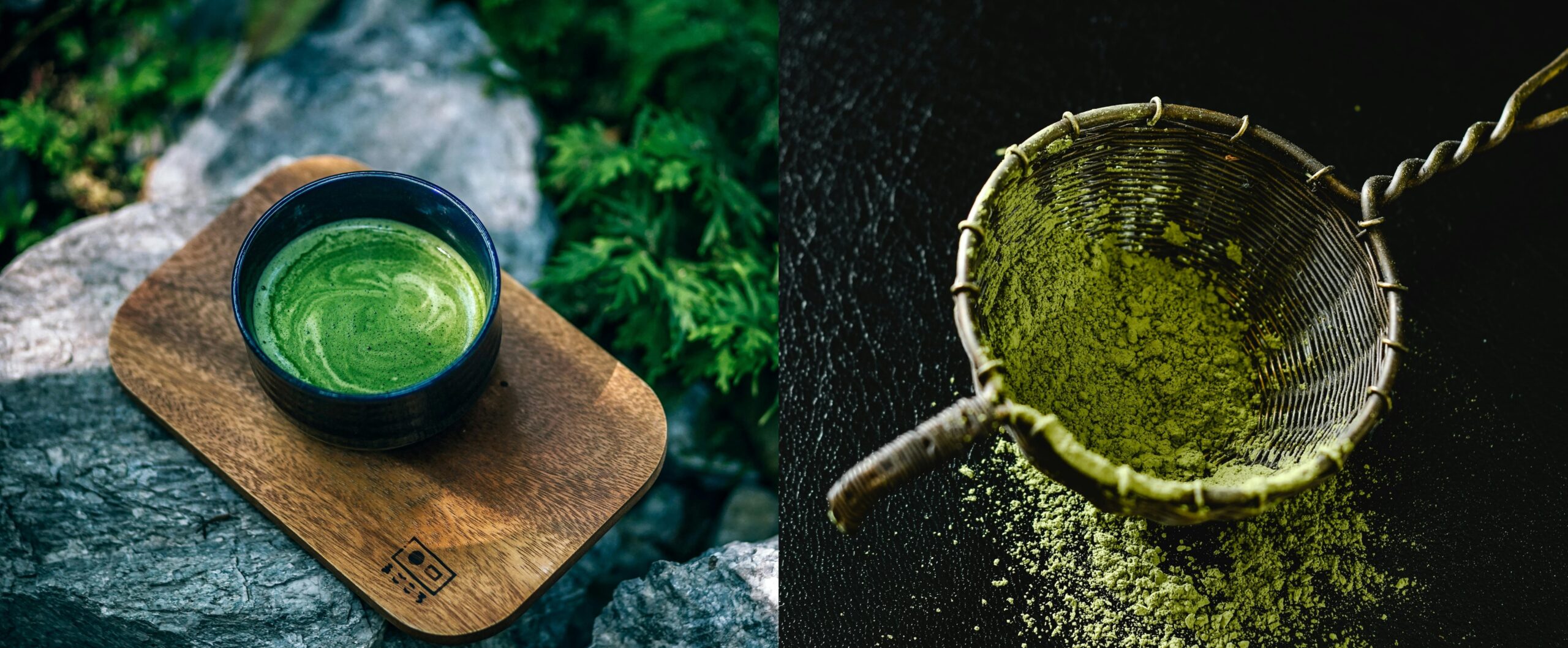Table of Contents

Introduction
In recent years, matcha magic/ matcha has surged in popularity, making its way from traditional Japanese tea ceremonies to modern wellness routines worldwide. But what is matcha, and why is it gaining such traction? This article explores the fascinating history, profound health benefits, and versatile uses of matcha, revealing how this vibrant green powder can transform your wellness journey.
The Origins of Matcha: A Historical Perspective
Matcha, a finely ground powder of specially grown and processed green tea leaves, has its roots deeply embedded in Japanese culture. The practice of consuming powdered tea dates back to the Tang Dynasty in China (618–907 AD), but it was the Zen Buddhists in Japan who refined the practice into what we now recognize as the traditional Japanese tea ceremony, or “chanoyu.”
Key Historical Milestones
- Tang Dynasty: Introduction of powdered tea.
- 12th Century: Zen monk Eisai brought tea seeds from China to Japan.
- 16th Century: The formalization of the Japanese tea ceremony by Sen no Rikyū.
The Unique Cultivation Process of Matcha
What sets matcha apart from regular green tea is its unique cultivation and processing. The journey of matcha from leaf to powder involves several meticulous steps listed below.
- Shading: Approximately 20-30 days before harvest, tea plants are shaded to increase chlorophyll levels, resulting in a vibrant green color and enhanced production of amino acids.
- Hand-Picking: Only the youngest, most tender leaves are hand-picked.
- Steaming: The leaves are steamed to prevent oxidation.
- Drying: The leaves are then dried and sorted.
- Grinding: Dried leaves, called tencha, are ground into a fine powder using stone mills.
The Nutritional Matcha Magic
Matcha’s nutrient powerhouse profile is what makes it a superfood. Below is the breakdown of its key components.
- Catechins: Particularly epigallocatechin gallate (EGCG), a powerful antioxidant.
- Amino Acids: Especially L-theanine, which promotes relaxation and well-being.
- Chlorophyll: Detoxifying agent that gives matcha its vibrant green hue.
- Vitamins and Minerals: Including vitamin C, selenium, chromium, zinc, and magnesium.
Health Benefits
- Rich in Antioxidants: Matcha contains 137 times more antioxidants than regular green tea.
- Boosts Metabolism: EGCG has been shown to increase fat burning.
- Enhances Calmness: L-theanine induces relaxation without drowsiness.
- Detoxifies the Body: Chlorophyll helps eliminate heavy metals and toxins.
- Promotes Heart Health: Regular consumption can reduce LDL cholesterol and blood pressure.
- Supports Cognitive Function: L-theanine and caffeine together can improve cognitive performance and attention.
Matcha in Your Wellness Routine
Incorporating matcha into your daily life can be both simple and enjoyable. Here are some creative ways to include matcha in your wellness routine:
- Matcha Tea: The traditional and simplest method.
- Matcha Latte: A popular option for coffee lovers transitioning to tea.
- Smoothies: Boost your morning smoothie with a teaspoon of matcha.
- Baking: Add matcha to muffins, cakes, and cookies for a healthy twist.
- Savory Dishes: Use matcha in soups, sauces, and dressings.
Recipe: Matcha Latte
- Ingredients: 1 teaspoon matcha powder, 2 teaspoons hot water, 3/4 cup milk (dairy or plant-based), sweetener to taste.
- Instructions
- Sift matcha into a mug to avoid clumps.
- Add hot water and whisk until frothy.
- Heat milk and pour over the matcha mixture.
- Sweeten to taste and enjoy!
Matcha and Mindfulness: The Ritual of Tea
The traditional Japanese tea ceremony is a meditative practice that emphasizes the principles of harmony, respect, purity, and tranquility. Integrating such mindfulness rituals into your routine can enhance the overall wellness experience.
Steps of a Basic Matcha Ceremony
- Preparation: Clean and arrange the tea tools.
- Purification: Cleanse the tea bowl, whisk, and scoop.
- Serving: Measure and sift the matcha.
- Whisking: Add hot water and whisk the matcha until frothy.
- Enjoying: Drink the matcha with gratitude and mindfulness.
Scientific Backing: What Research Says About Matcha
Scientific studies have supported many of the health claims associated with matcha. Here are some notable findings:
- Antioxidant Activity: In the literature, it was documented that matcha has significantly higher catechin levels compared to other green teas .
- Weight Loss: One study demonstrated that green tea extract, rich in catechins like those in matcha, can enhance fat oxidation and improve weight management.
- Cognitive Function: L-theanine, in combination with caffeine, improves cognitive performance and increases alertness without the jittery side effects of coffee.
- Anti-Cancer Properties: Another study revealed that matcha can inhibits the propagation of cancer stem cells (CSCs), by targeting mitochondrial metabolism, glycolysis and multiple cell signalling pathways.
- Liver Health: It is also documented in the literature that matcha can protect the liver and improve its functions by reducing liver enzyme levels.
- Mental Health: It was also found that the L-theanine in matcha can reduce stress and anxiety levels, promoting a sense of calm and well-being.
Potential Side Effects and Considerations
While matcha is generally safe for most people, it’s important to be aware of potential side effects and consumption guidelines:
- Caffeine Content: Matcha contains caffeine, so those sensitive to caffeine should consume it in moderation.
- Quality Matters: Opt for high-quality, organic matcha to avoid contaminants like lead.
- Medical Conditions: Consult with a healthcare provider if you have specific medical conditions or are pregnant.
Conclusion: Embrace the Matcha Magic
From its rich historical roots to its myriad health benefits, matcha is much more than a trendy beverage. It’s a versatile superfood that can be seamlessly integrated into your wellness routine. Whether you start your day with a calming matcha latte or incorporate it into your meals, the magic of matcha is sure to enhance your journey towards better health and mindfulness.
Embracing matcha means more than just enjoying a delicious and vibrant drink; it’s about adopting a holistic approach to wellness that has been cherished for centuries. The antioxidants, amino acids, and vital nutrients found in matcha provide a foundation for a balanced and health-conscious lifestyle. By choosing matcha, you are not only indulging in a flavorful treat but also investing in your long-term health and well-being.
Imagine beginning each day with a ritual that not only energizes your body but also calms your mind. The unique combination of caffeine and L-theanine in matcha offers a sustained energy boost without the jittery side effects often associated with coffee. This balanced energy release can help you stay focused and productive throughout the day, making matcha an ideal companion for both work and relaxation.
Moreover, the versatility of matcha extends beyond the traditional tea bowl. Its vibrant green hue and distinct flavor can elevate a wide range of culinary creations. From smoothies and baked goods to savory dishes and desserts, matcha adds a nutritious twist to your favorite recipes. Experimenting with matcha in the kitchen can be a fun and rewarding way to incorporate this superfood into your diet.
Adopting matcha as part of your wellness routine also connects you to a rich cultural heritage. The mindful preparation and enjoyment of matcha can be a meditative practice that brings a sense of peace and presence to your daily life. This connection to tradition and mindfulness can enhance your overall sense of well-being, fostering a deeper appreciation for the simple pleasures in life.
As you integrate matcha into your lifestyle, you’ll likely find that its benefits extend beyond the physical. The act of preparing and savoring matcha can become a moment of tranquility in a busy day, offering a respite from the hustle and bustle of modern life. This mindful approach to consumption aligns perfectly with contemporary wellness trends that emphasize self-care and mental health.
In summary, matcha is not just a beverage but a bridge to a healthier, more balanced life. Its comprehensive health benefits, coupled with its ability to promote relaxation and mindfulness, make it a powerful ally in the pursuit of holistic wellness. So, why not embrace the matcha magic today and start experiencing the profound impact it can have on your health, mind, and spirit? Let matcha be your daily companion on the path to a healthier, more mindful, and joyful life.
References
https://www.ncbi.nlm.nih.gov/pmc/articles/PMC7796401
https://www.ncbi.nlm.nih.gov/pmc/articles/PMC3649093
https://www.ncbi.nlm.nih.gov/pmc/articles/PMC8794723
https://www.ncbi.nlm.nih.gov/pmc/articles/PMC6128439
https://www.ncbi.nlm.nih.gov/pmc/articles/PMC8226714
https://www.ncbi.nlm.nih.gov/pmc/articles/PMC9792400
https://www.ncbi.nlm.nih.gov/pmc/articles/PMC9921318

